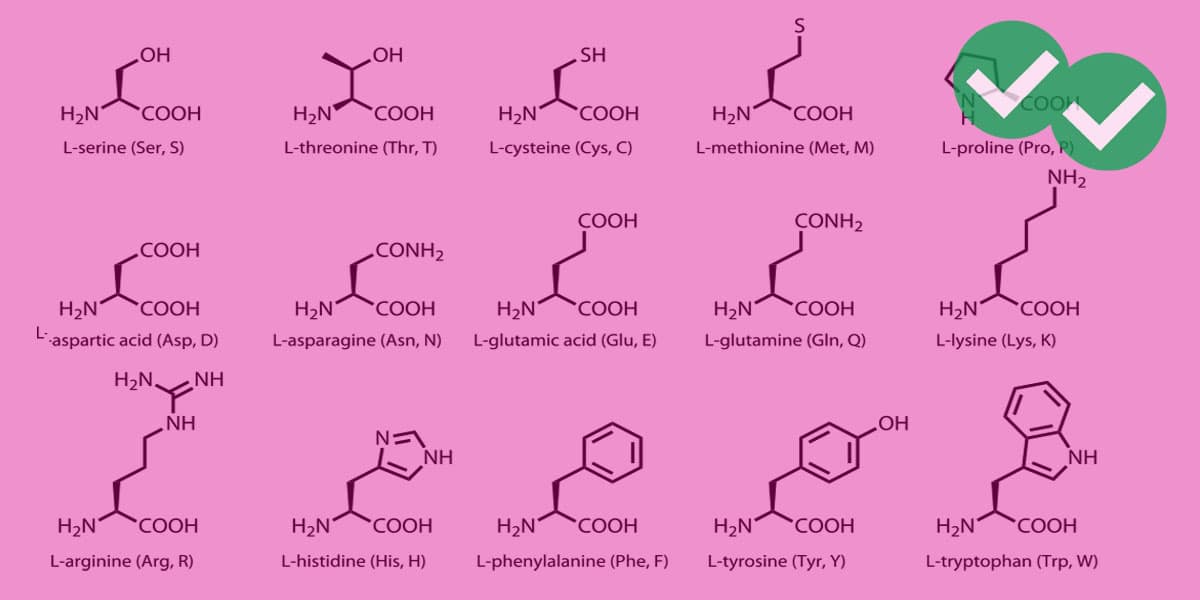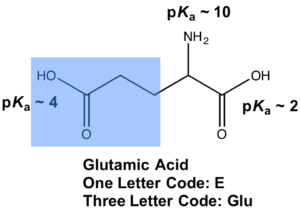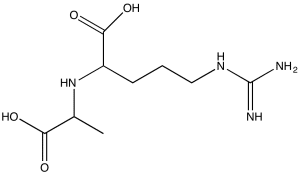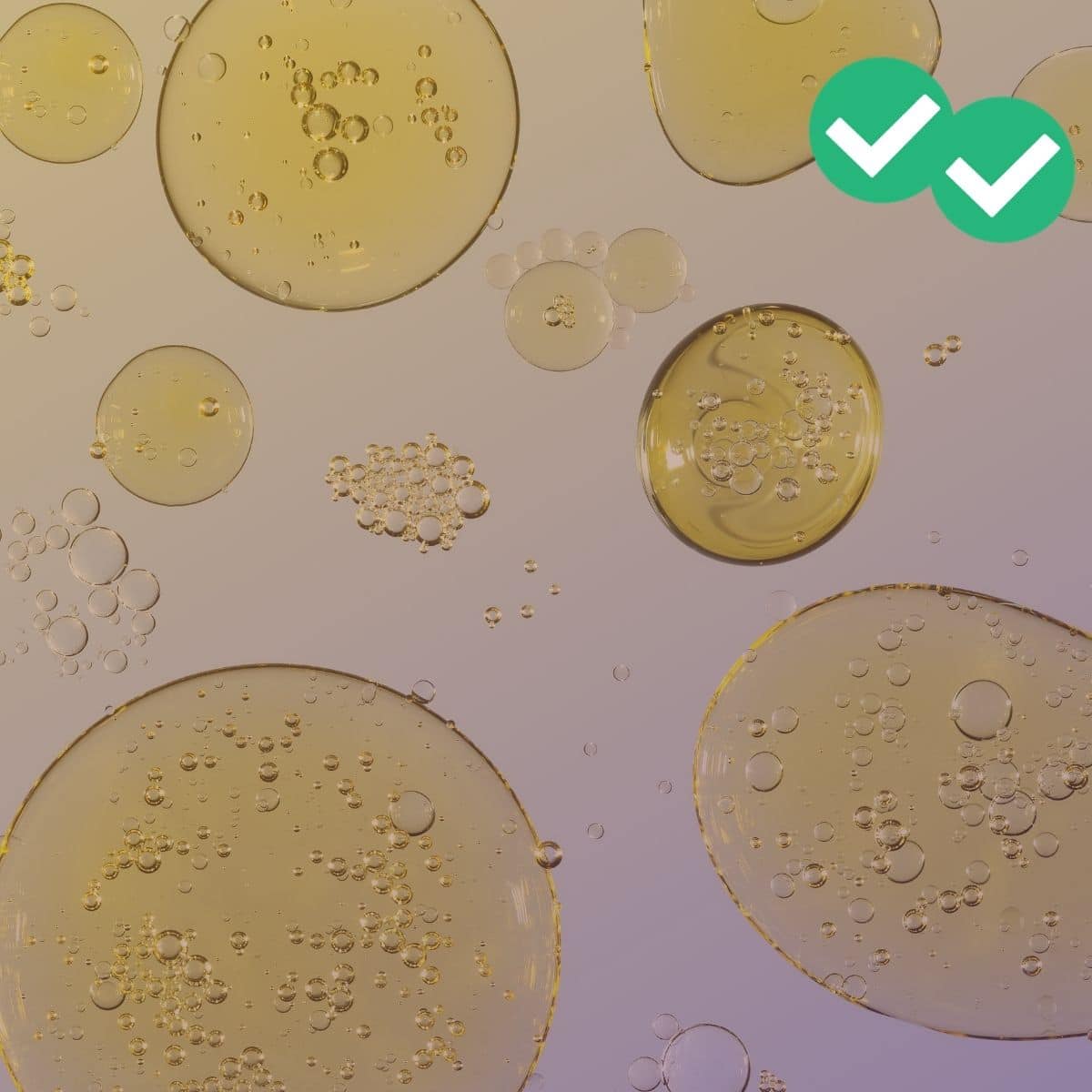
On the MCAT, biochemistry is the second most tested natural science subject after biology. You might now recall the pain of having to memorize the entire cellular respiration pathway and the structures of all the amino acids for your biochemistry class. It’s true these concepts will be tested on the MCAT but not to as much depth. In this post, we will talk about MCAT amino acids and what you need to know about them for the exam.
What You Need to Know for the MCAT
If you talk to any student that has taken the MCAT, they will tell you that amino acids are a big deal. You need to have all twenty amino acids memorized. This includes the structure of the side chains, the pKa of the side chain (if applicable), the one-letter code, and the three-letter code for each amino acid. In addition, you will need to be able to classify each as hydrophobic, hydrophilic, acidic, or basic. Below, we have an example of what you need to know for the acidic amino acid, glutamic acid:
This is a lot to memorize but, unfortunately, there is more. According to the content outlines for the MCAT, you will also need to know:
- How to synthesize amino acids, specifically the Strecker Synthesis and Gabriel Synthesis
- Common amino acid reactions, including the formation of disulfide and peptide bonds
- How to calculate the charge of an amino acid and its isoelectric point
We hope you get the point. MCAT amino acids are important. There are numerous ways that the exam can test these special organic compounds.
MCAT Amino Acids Practice Questions
To give you an idea of how the MCAT tests amino acids, we have a couple practice questions for you to try. If you think you know the answers, go ahead and let us know by commenting below!
1. What is the net charge of the oligopeptide DVLNQEK at pH 7?
A. +1
B. 0
C. -1
D. -2
2. Octopine is an analog of lactic acid found in the muscle tissue of some invertebrates. Which two amino acids is the compound (shown below) derived from?
A. Gly and Arg
B. Ala and Lys
C. Ser and Tyr
D. Arg and Ala









